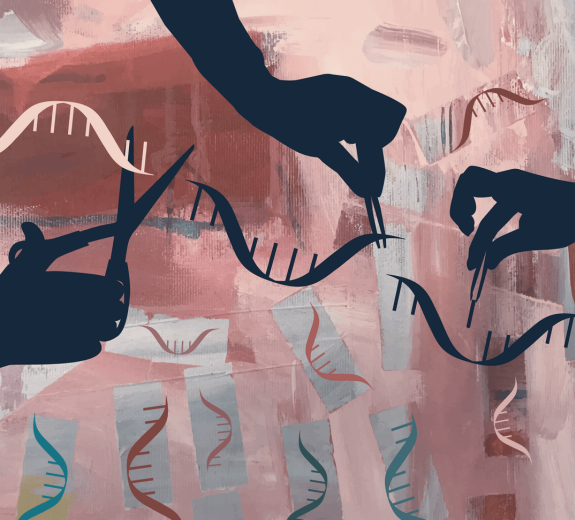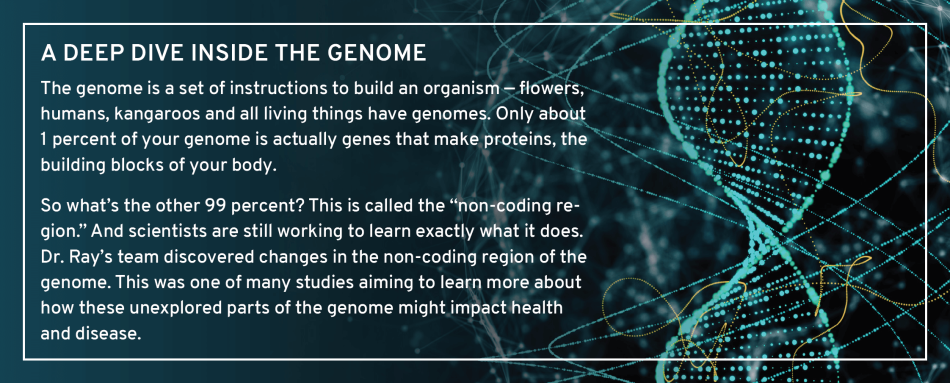But far fewer of those changes likely cause disease. Think about it this way: The genome is a city where your genetic material is stored. Houses are genes and power lines are genomic regions that interact with genes — and most autoimmune risk variants are in these power lines. Scientists have determined the neighborhoods that are experiencing power outages. But they need to identify the exact power lines causing the problem and which houses are affected.
For years, Dr. Ray has been working with Ryan Tewhey, PhD, from the Jackson Laboratory and Nir Hacohen, PhD, from the Broad Institute to pinpoint which of the 18,000 genetic variants cause diseases. In a recent breakthrough, they narrowed down the list of possible variants to 60 that likely act in an immune cell type called T cells, which attack healthy tissue in autoimmune disease.
“Prioritizing these 60 variants makes it easier to deeply study genetic mechanisms that put us at risk for autoimmunity,” Dr. Ray says. “Eventually, this could help us understand who might be at risk, and lead to more targeted medications with fewer side effects.”
Narrowing the Field
Finding exactly which genetic changes cause autoimmune disease is no small task. Dr. Ray’s team started by using a massively parallel reporter assay to take an in-depth look at each of the 18,000 gene variations. This cutting-edge tool provides detailed information that helps the team better understand how each variant might impact nearby genes. It enabled them to narrow the field to 300 genetic variations. Then they looked for whether these 300 variants fall in regions of the genome that likely affect T cells, which narrowed the field to 60.
They checked their work with statistical analyses that looked closer at each variant and told them which ones were most likely to cause disease.
“The statistical tool is sort of a sanity check, helping confirm that we were focusing on the right variations,” Dr. Ray says. “Together, these screens provide an incredibly stringent method for determining if genetic changes actually cause disease. Ultimately, we found 60 likely causal genetic variations.”
How Genetic Changes Cause Disease
Next, Dr. Ray’s team wanted to demonstrate how these genetic variants cause autoimmune disease. They used genome editing to test the effect of one of the likely disease-causing variants in T cells, finding that it altered expression of a nearby gene. Then, they created a model of the variant and found that it caused the T cells to be more activated — which is likely a key mechanism for how the variant promotes autoimmune diseases.
“This is a really key part of the study because it actually links genetic risk to the function of the immune system, contributing to our findings that these genetic variants actually cause disease,” Dr. Ray says.
Moving forward, Dr. Ray’s team will continue studying these 60 genetic changes, examining whether some are tied to more severe disease and performing the same experiment in another immune cell type called B cells.
“Knowing exactly which variants cause disease will help us predict who is at risk,” Dr. Ray says. “We can also seek out treatments that specifically target these genetic changes. And eventually, we may even be able to stop disease before it starts.”





